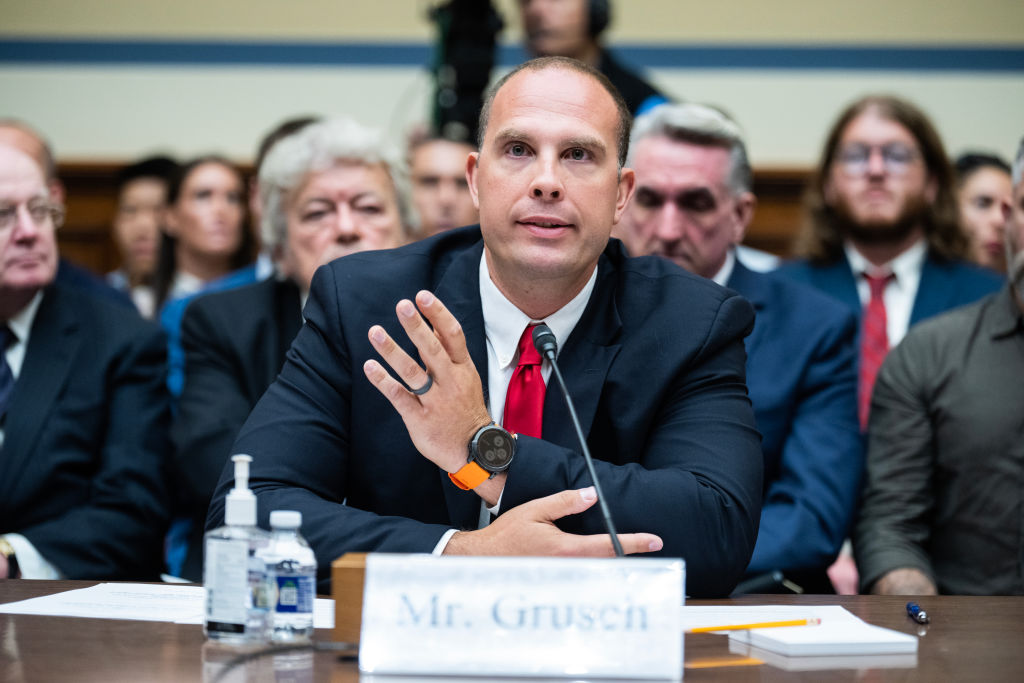Unidentified anomalous phenomena (UAP), known colloquially as UFOs, were the subject of a shocking congressional hearing this week, with whistleblower David Grusch shining a light on on the executive branch’s attempts to keep a century’s worth of vital information from the public. Amid growing public interest, lawmakers are calling for increased transparency from executive branch agencies and the Pentagon.
Grusch’s 14-year service as an intelligence officer in the Air Force and the National Geospatial Intelligence Agency has lent credence to his claims. He also represented two Pentagon task forces investigating UAPs, during which he discovered hints of a multi-decade UAP crash retrieval and reverse-engineering program.
Grusch alleged that attempts to access these programs were denied, suggesting a potential misappropriation of funds to shield operations from congressional oversight. These claims, alongside Grusch’s statement that some aircraft have “nonhuman” origins, have increased pressure on Congress to investigate. Representative Tim Burchett (R-TN) asserted, “We’re going to uncover the cover-up, and I hope this is just the beginning of many more hearings and many more people coming forward about this.”
Public intrigue around the UAP issue surged following the release of several video recordings of high-speed, nondescript objects moving in unexplainable ways. The Pentagon’s All-Domain Anomaly Resolution Office (AARO), established by Congress to probe these incidents, has investigated nearly 800 reports as of May. Despite most cases having innocuous origins, a considerable number remain unexplained.
The hearing panel also hosted Ryan Graves and David Fravor, both former fighter pilots with firsthand UAP experiences. Their testimonies echoed Grusch’s sentiments about the inadequacy of current reporting systems and the lingering stigma associated with UAP encounters. Graves noted, “If everyone could see the sensor and video data I witnessed, our national conversation would change. The American people deserve to know what is happening in our skies. It is long overdue.”
Congress’s push for UAP transparency has culminated in an amendment to the annual defense spending bill, demanding executive branch agencies to release UAP records to a review board, following the precedent set by legislation concerning the JFK assassination.
In the face of mounting evidence and public interest, the demand for transparency about UAPs is becoming an increasingly bipartisan issue. As Democratic Rep. Jared Moskowitz (FL) declared, “We should have disclosure today. We should have disclosure tomorrow. The time has come.” Whether these calls will lead to the expected transparency remains to be seen, but it’s clear that the quest to understand the UAP phenomenon has moved from the realm of science fiction to a pressing national security issue.













